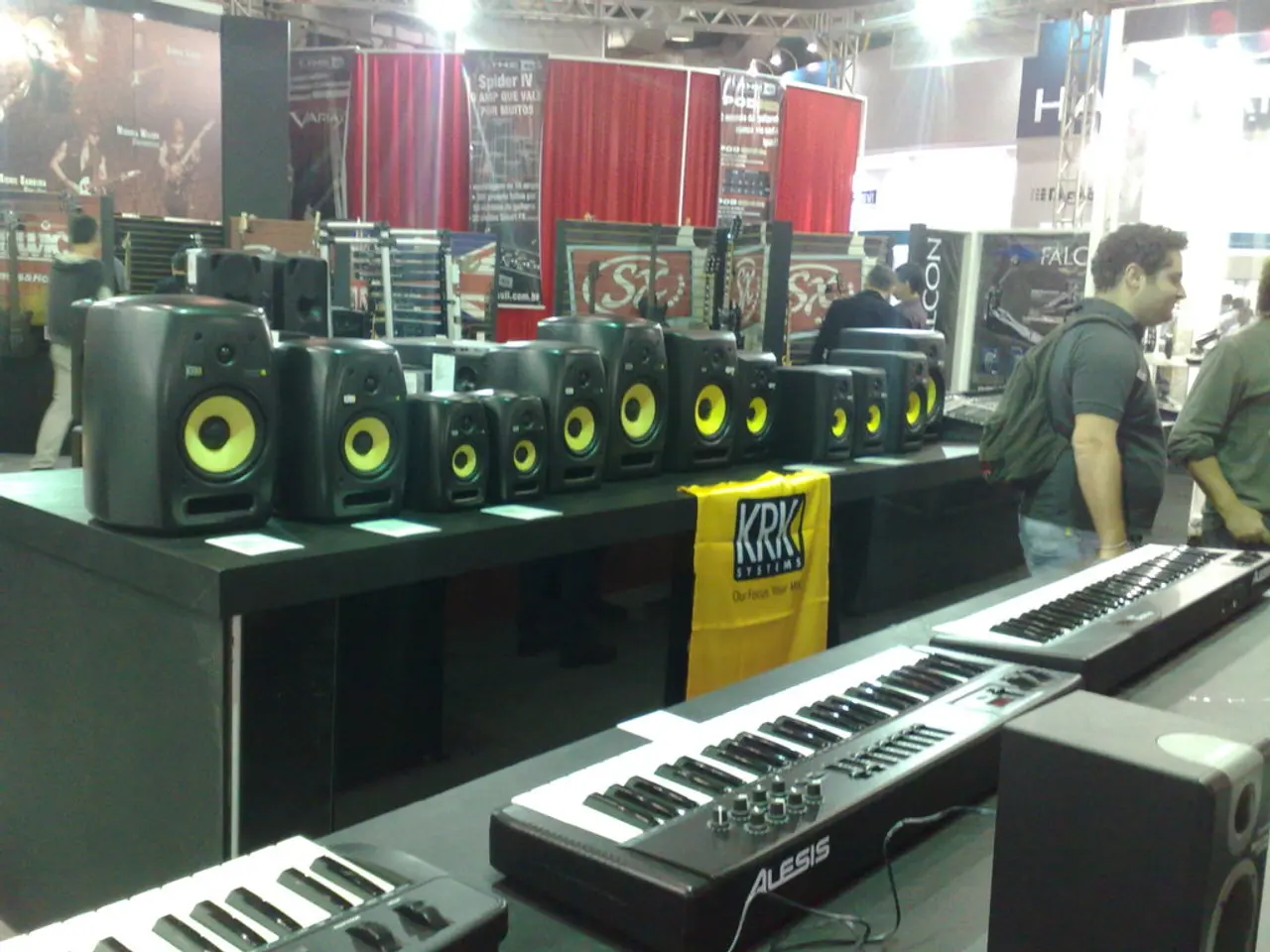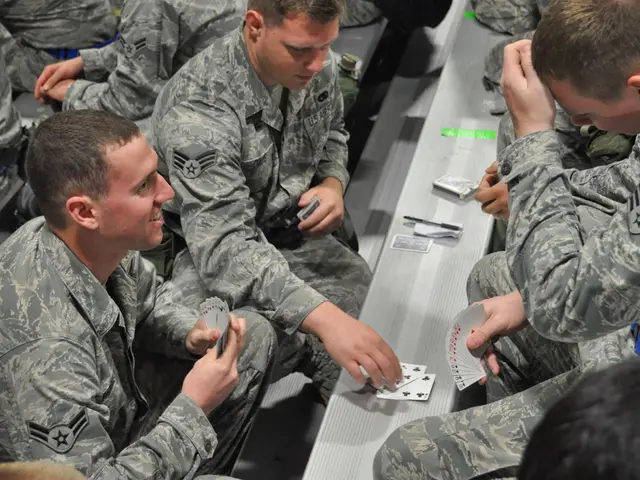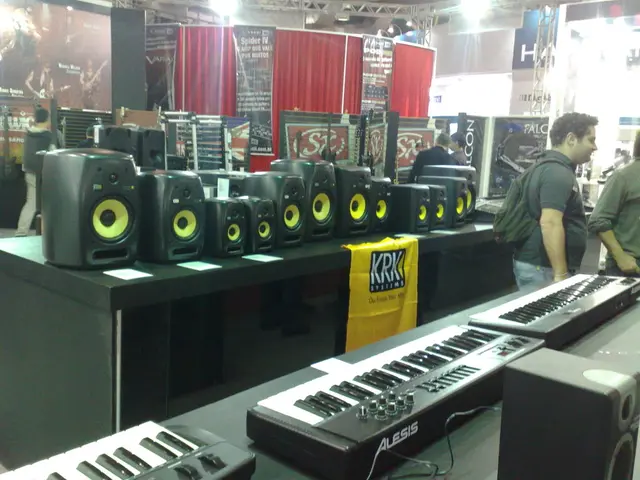A chronicle of Macau's transformation from a humble fishing village to a significant gambling center, highlighting its historical evolution across the centuries - Continuation 2
In the heart of China's coast, Macau stands as a unique Special Administrative Region, a global gambling hub that continues to captivate visitors with its grand casinos and cultural allure. However, the industry that has long defined Macau's identity faces a complex web of challenges and opportunities.
Macau's gambling sector, primarily attracting high rollers from the Asian-Pacific region, is a significant contributor to the city's economy. The Venetian Macau, the second-largest casino in the world, spans over 50,000 square meters and houses more than 3,000 slot machines and 800 gaming tables. The Grand Lisboa, a distinctive lotus-shaped structure, offers approximately 800 gaming tables and 1,000 slot machines. Wynn Palace, with its Performance Lake, luxury hotel, numerous restaurants and shops, and over 1,000 gaming tables and slot machines, is another testament to Macau's gambling metropolis.
However, the industry's future is uncertain. Stricter regulation, particularly anti-money laundering enforcement under pressure from mainland China, poses a significant challenge. In 2021, the CEO of Suncity, Alvin Chau, was arrested and later sentenced to 18 years in prison in January 2023, reflecting the increased scrutiny on the industry. Many junket operators have responded by closing their businesses or significantly scaling them back.
Political tensions and regulatory tightening by mainland China are also concerns. China bans gambling on the mainland and increasingly tightens oversight over Macau’s gaming industry, including bans on proxy betting and customer fund scrutiny to curb illicit flows. These measures can reduce high-roller visitation and revenue.
Macau must also compete with other Asian gambling destinations and the rise of online gambling, which remains illegal in mainland China but growing elsewhere.
Despite these challenges, the future of Macau's gambling industry is not entirely bleak. Optimistic observers point to the growing Asian middle class and the increasing popularity of online gambling as potential opportunities. As more individuals in Asia attain middle-income status, discretionary spending on leisure, including gambling and tourism in Macau, is expected to increase, potentially broadening Macau’s customer base beyond VIPs to mass-market and regional tourists.
Industry diversification and enhanced compliance are also likely strategies for Macau casinos. Strengthening AML programs and diversifying entertainment offerings can reduce regulatory risks and appeal widely.
Macau's unique status as the only legal gambling jurisdiction in China gives it an outsized role in the global gambling market, which should sustain long-term demand so long as it adapts to political and regulatory realities. The city has managed to blend the world of gambling with an unmistakable cultural and historical flair, offering visitors a unique experience compared to other gambling hotspots.
In conclusion, Macau’s gambling industry must carefully balance compliance and political factors while leveraging demographic shifts in Asia to ensure sustainable growth. The city's future development will continue to be based on creativity, as it has been for the past 50 years, under the guidance of visionaries like Dr. Ho.
Online casinos in Germany, as well as other casino-and-gambling establishments, might find similar challenges and opportunities to Macau's, given the increasing scrutiny on the gambling industry and stricter regulations like anti-money laundering enforcement. Casino personalities worldwide may be able to learn from the strategies employed by casino-games providers in Macau, such as diversification, fortifying AML programs, and expanding entertainment options to reduce regulatory risks and appeal to a wider audience. Las Vegas, for instance, could draw inspiration from Macau's blend of casino games and cultural allure to attract more visitors and maintain its position as a global gaming hub.




